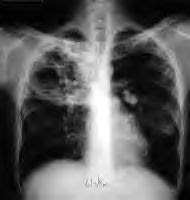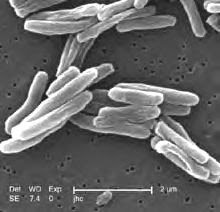Experts have long complained that the lack of new antibiotics in development or ready for market, combined with the presence of increasingly resistant bacteria, has been exhausting treatment options. There are early signs, however, that this situation may be improving.
"This is a very exciting time. It's very encouraging that it appears that the pharmaceutical companies are coming forward with new agents that have new mechanisms of action," said Karen Bush, PhD, a distinguished research fellow at Johnson & Johnson Pharmaceutical Research & Development in Raritan, N.J.
Dr. Bush was speaking at last month's Interscience Conference on Antimicrobial Agents and Chemotherapy, in Chicago. According to informal surveys by infectious disease experts, researchers at this meeting presented data on more than 120 completely new compounds, an unprecedented number. It's too early to predict which compounds eventually will reach patients, but observers hope the heightened level of activity signals a reversal of the trend of fewer new antibiotics coming online each year.
To add momentum to the antibiotic pipeline, some experts at the meeting were advocating a change in the way scientists pursue new germ-killers. For a decade or more, research has focused on targets emerging from the genetic sequencing of various pathogens. Scientists say that although this work has been valuable with regard to increasing the understanding of these bugs, it has not fulfilled hopes for discovering new treatments. Instead, those in the field are urging scientists to return to hunting in the natural world -- the source of the earliest antibiotics. New developments regarding the treatment of tuberculosis also are adding to the optimism and providing important insights into strategies to fight other infections.
For instance, data were presented at the meeting regarding at least seven possibilities for tuberculosis. This condition hasn't had new treatment options for decades, and medications being investigated include completely new agents as well as old ones that are not usually used for this infection.
"We now have more tuberculosis drugs in clinical development than at any other time in history," said Melvin Spigelman, MD, director of research and development at the Global Alliance for TB Drug Development. "For doctors to have seven drugs in development is really a remarkable achievement."
In the case of TB, experts want these new approaches to address emerging resistance as well as allow patients to take fewer medications for shorter periods. TB's six-month-or-longer, multidrug regimen is viewed as one of the biggest barriers to controlling the illness.
"We have excellent tuberculosis treatment," said Dr. Jacques Grosset, a professor at the Center for Tuberculosis Research at Johns Hopkins University School of Medicine in Baltimore. "But 50% of patients don't complete the treatment that should cure them. There are a lot of failures and a lot of deaths and a lot of drug resistance because of this. We should shorten the duration of treatment because the treatment now is extraordinarily difficult to complete."
http://tinyurl.com/2ao66h
WHAT'S NEW IN TUBERCULOSIS
Tuesday, 2 October 2007
Subscribe to:
Post Comments (Atom)





No comments:
Post a Comment